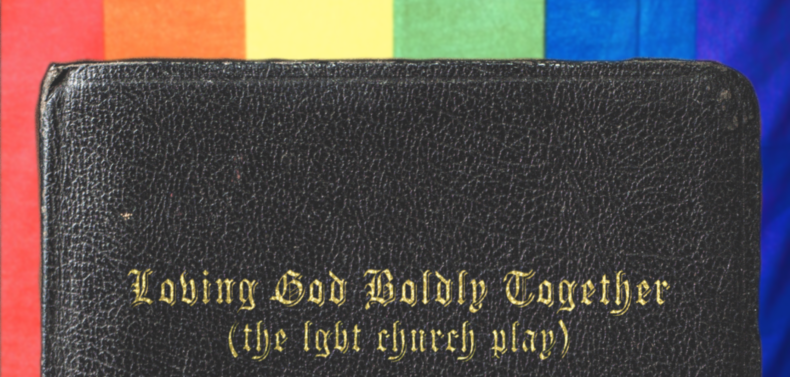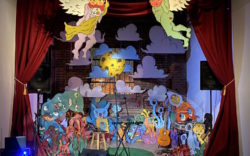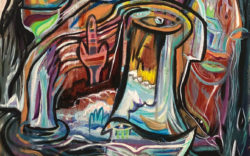Editor’s Note: This is a personal essay. For more information about local productions of the play Loving God Boldly Together, see Flagpole’s Calendar Pick.
After the initial grief of the five individuals lost and the 18 individuals harmed at Club Q in Colorado Springs, CO, Nov. 19, just minutes before Trans Day of Remembrance, it’s necessary to say the names of those lost: Daniel Davis Ashton, Raymond Green, Kelly Loving, Ashley Paugh, Derrick Rump. It is necessary to acknowledge that we are not safe, but that we keep each other safe: Two patrons took down the shooter, doing more than the police officers present will do in their entire careers. And it is necessary to acknowledge the lives that are still here: We are here.
In Athens specifically, aside from the bars that claim the queer femme communities perpetuating their harm instead, the queer community seen from the vantage of lesbians, and of women, is strong. The community isn’t a large percentage of the Athens population, but the small gatherings of dykes and queers is hope, a balm to the death that overarching systems of misogyny demand of us. Our narrative is not decay and hiding behind masculinist circles that insist on stepping on the necks of women. Our narrative is built on love.
Part of resilience in Athens is the play Loving God Boldly Together, written and directed by Caro Caden, a UGA graduate student, member of the Athens Pride Board and queer star in Athens. The play will be performed Nov. 28–29 in the Cellar Theater and Dec. 2–3 at Oconee St. Methodist Church. Admission is free. Seating is first come, first seated.
This play is needed right now as we face acts of terror coming from Christian Nationalists, fostered by current anti-LGBTQ legislature and groups, such as Focus on the Family, that have historically spoken against the existence of queer communities. Loving God Boldly Together flies in the face of the narrative that queer communities are either dead or doomed to be dead.
Loving God Boldly Together follows the main character Callie as she goes to an LGBTQ church group shortly after moving to Atlanta; grapples with her mother’s terminal illness and her own sexuality; and struggles with recovering from religious trauma while trying to connect with other queer folks. Caden crafts a plot where queer folks meet with each other, similar to church. But there isn’t a fixation on theology; there is an urgency to be good to each other. Caden’s clever wielding of classic queer narratives, like “what do I do about falling in love with a friend’s ex partner;” “when should you come out publicly so that you are committed to other queer folks, but also ensure that you are safe?;” “how do we keep community throughout heartache, fear, and a society that insists on violence, on the imminence of our death?” Caden’s use of cancer as a through line for Callie’s relationship with her mother is adjacent to comparisons of cancer and HIV/AIDS, described by Susan Sontag in her piece Illness as Metaphor, allowing the play to press on the issue of grief and illness without pathologizing STDs. This play crafts dialogue around the queer southern narrative: The tension between living with grit and resilience as a way of loving boldly, but being told that, because we are queer, there is nothing but being alone, flashes of pleasure and death. The play states loudly: We are here. Boldly. Together. Always.
Queer communities in the South are figuring out how to combine the communal qualities of the religion they grew up in with the exuberant joy of loving freely and abundantly, relishing the pleasures of body and of God. The play pushes family heartache, literal death, desperate longing and heartache, falling in and out of love, sex work and god into a fanciful storyline, challenging the simplicity of the Queer southern narrative: What happens when we stop playing the cis-heteronormative role that we are told is necessary to avoid death? What happens when we don’t give in to the away that evangelicals sell, but instead lean hard into the under and here and together.
In this time when queer communities are reminded, over and over, that we are away from safety, we are emboldened by the knowledge that we have power, over and above everything, to be here, together.
Like what you just read? Support Flagpole by making a donation today. Every dollar you give helps fund our ongoing mission to provide Athens with quality, independent journalism.










